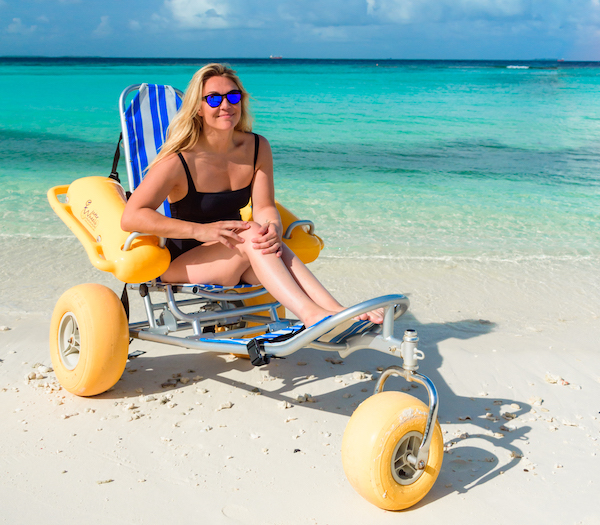More luxury hotels welcome dogs than disabled people, according to inclusive travel entrepreneur Richard Thompson.
Speaking at an event in London about accessibility challenges in travel, he said: “There are more luxury hotels in London – actually, around the world – who overtly welcome dogs. Just go to the websites to check it out.”
Commenting on behind-the-scenes documentaries featuring upmarket hotels, he asked: “How many times have you ever seen a mention of inclusion and accessibility?
“There will be great footage of the butler taking the dog for a walk in the Bentley across to Hyde Park, but what is there for the vast majority of disabled people?”
Thompson, the founder of Inclucare – an accreditation scheme for luxury hospitality and leisure – was speaking on a panel with representatives from Amilla Maldives Resort and Residences and Great Scotland Yard hotel in London – the first resort and hotel in the world to be certified by Inclucare.
“It is totally doable; if we can do it on a beautiful island in the middle of the Indian Ocean, and we can do it in a fabulous historic listed building here in London, we can do it anywhere,” he said.
Thompson said inclusive travel is the “last major untapped market”, but the luxury sector has shortest distance to go, because of its attention to detail.
“We find what the guests’ requirements are and strive to get them right,” he said.
More: Your Stories: Why Inclu Travel founder is ‘more upbeat than ever’ about travel for disabled clients [Sept 2020]
Travel for disabled people is ‘huge, untapped’ market [July 2018]
Thompson also highlighted how the “vast majority of brands” cannot confirm an accessible room when a booking is made, saying this is “utterly unacceptable”.
He said the key is support from leaders of travel brands, commenting: “This has to come from the top; if it’s not coming from the top, it ain’t going to work.”
The panel heard that one in five people has a significant mental or physical disability and one of the main contributors to disability is the ageing population.
Pierre Mazurier, associate sales director, Great Scotland Yard – which hosted the debate about accessibility – said the hotel has 11 accessible rooms with a choice of two categories. Since partnering with Inclucare the hotel has been named ‘Best Luxury Hotel’ in the Blue Badge Awards and made some lucrative sales – including one booking for three rooms for 75 nights.
He highlighted how the design is important so a stairlift has been made “as sexy as possible” and is showcased in a video so potential guests know what to expect beforehand.
Victoria Kruse, sustainability manager at Amilla Resort and Residences, said partnering with Inclucare was a “no-brainer”.
The resort’s accreditation by Inclucare has sparked government interest including a visit from the Maldivian minister of gender and family, who is also responsible for disability rights. She is now campaigning for legislative change to improve access and inclusion provision for Maldivians.
Amilla is also looking at how it can create an inclusive workplace that could open up job opportunities for disabled people.
Ed Warner, founder and chief executive at accessible design specialist Motion Spot, agreed that it is important to make accessible properties “sexy”.
He pointed out that only 8% of the market is wheelchair users, so his firm takes into account the needs of people with other physical, cognitive and neurodiverse needs.
Inclucare is developing a distribution system, Inclutel, that features all the accessibility and inclusion information that travellers require before booking.
“Accessibility is being invited to the party. Inclusion is being asked to dance,” said Thompson, who also runs his own agency called Inclu Travel.
Main picture, from left: panellists Ed Warner, Motion Spot; Pierre Mazurier, Great Scotland Yard hotel; Victoria Kruse, Amilla Resort and Residences; and Richard Thompson, Inclucare.

